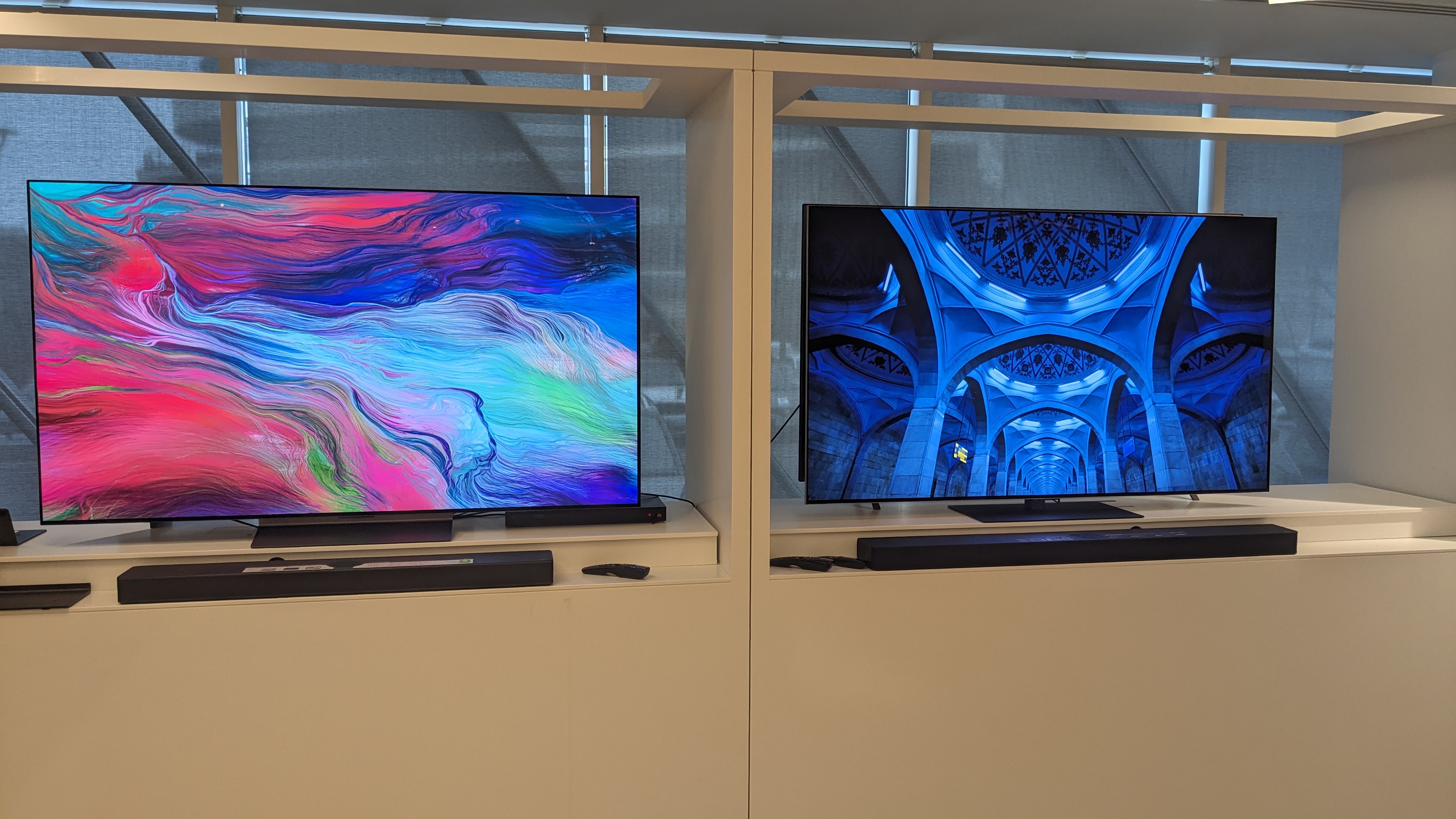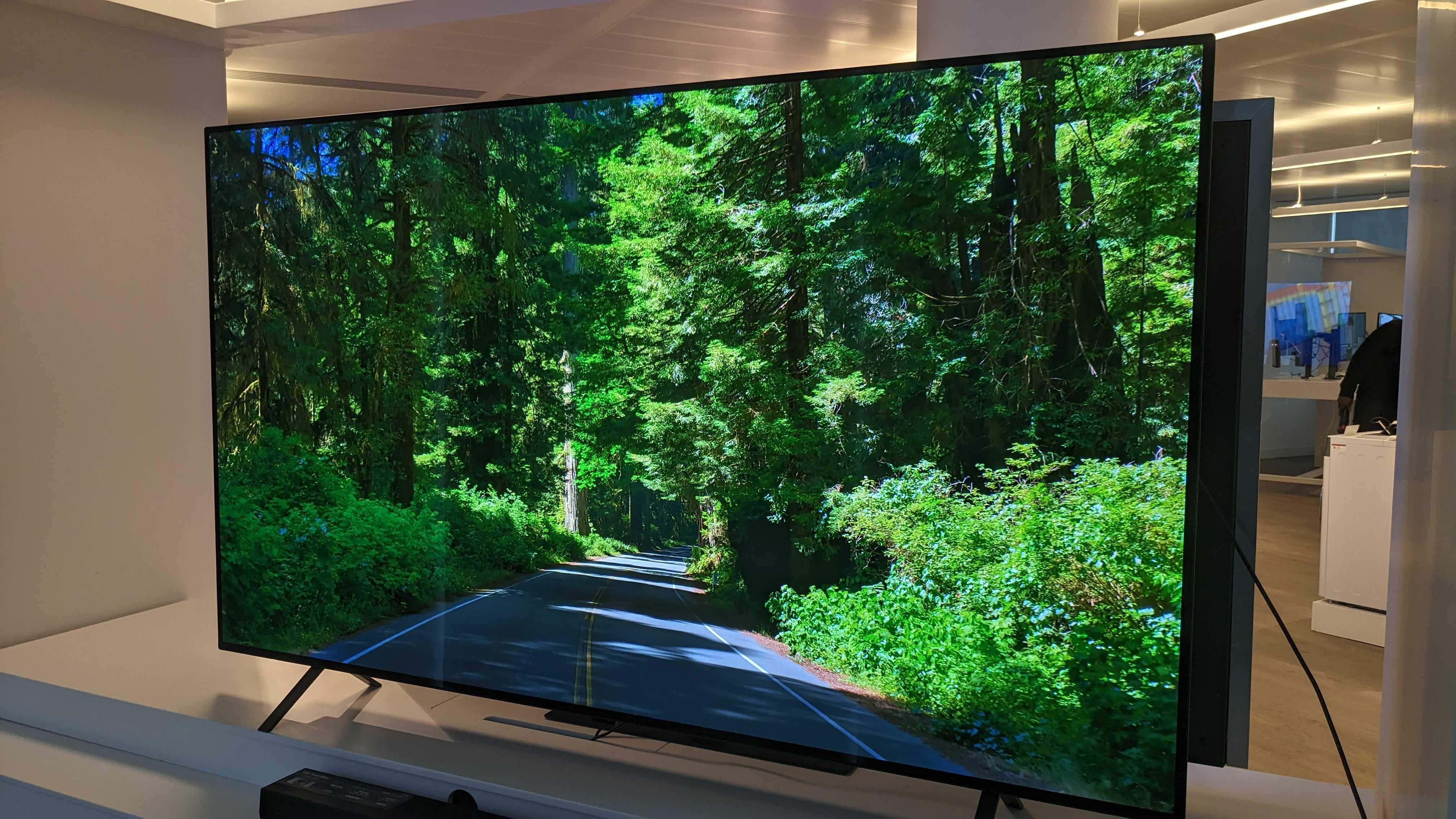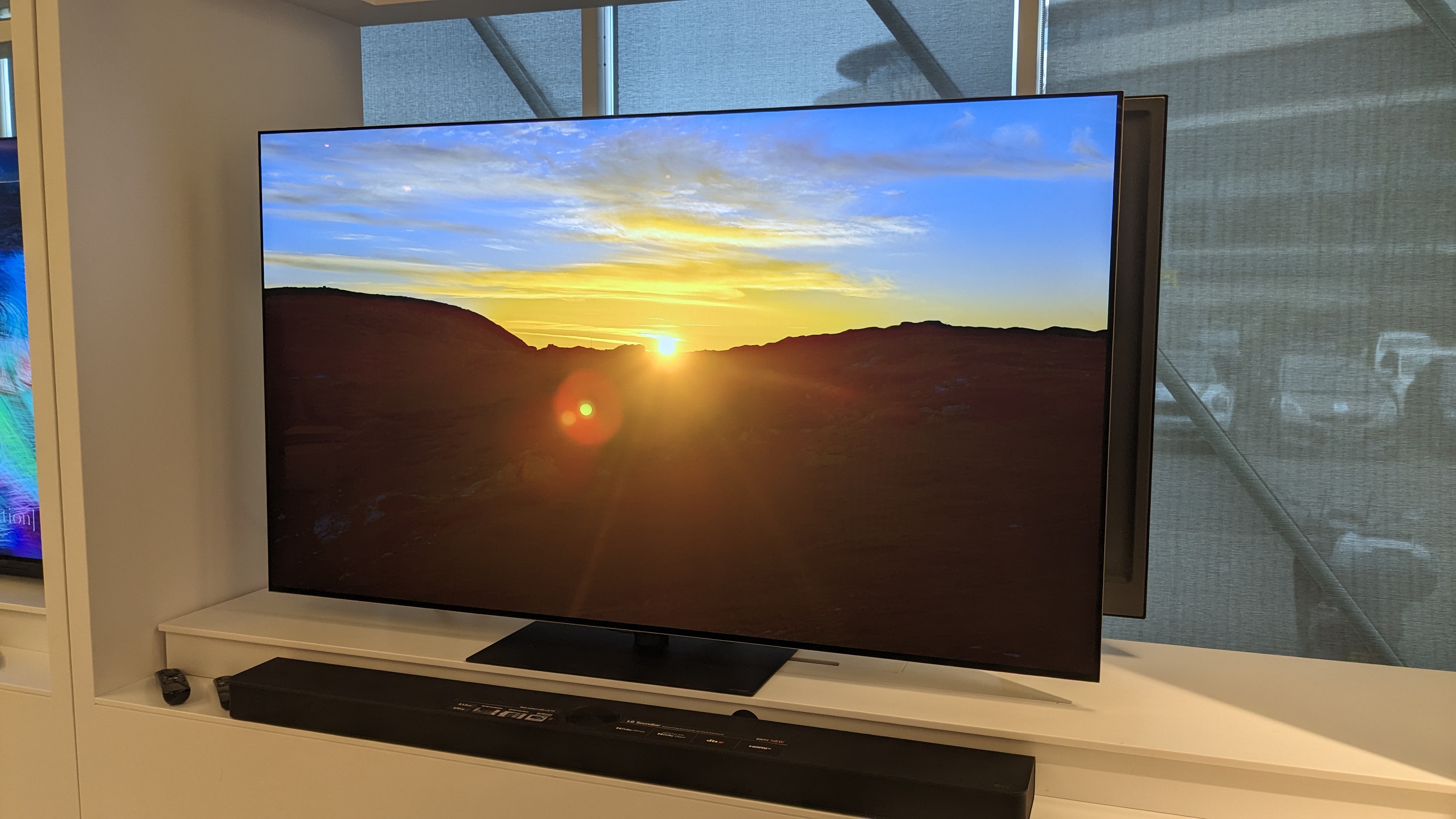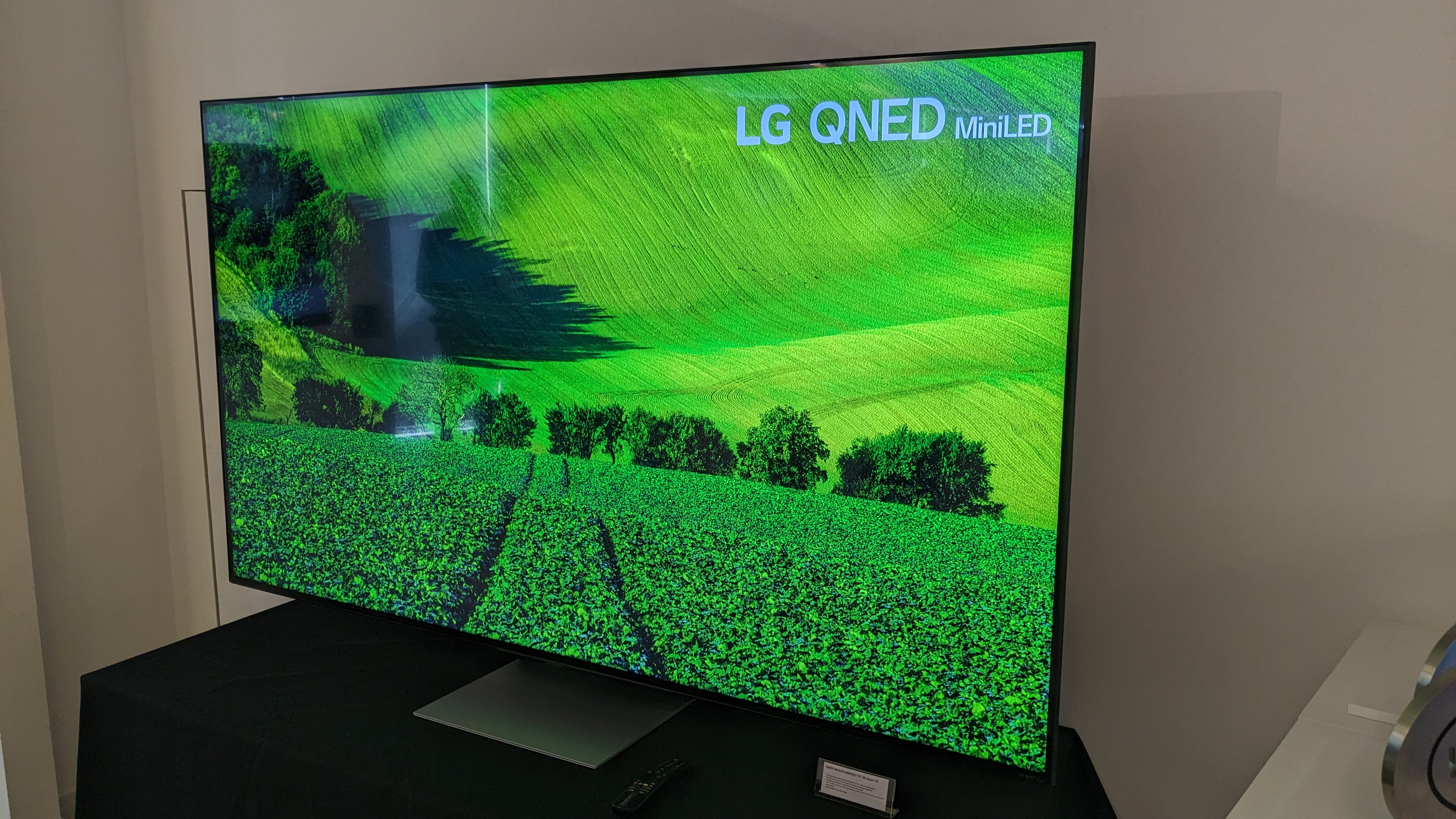I saw LG's 2024 TV lineup and these are the 3 models I can't wait to test
Two OLEDs and a mini-LED

I recently attended an LG reviewer workshop and saw its full 2024 TV lineup, which was originally announced in January 2024 ahead of CES 2024. LG’s latest range continues its usual trend, starting from a budget LED screen and leading up to a wireless OLED. At the workshop, we were treated to a preview of the range and given a breakdown of what we can expect from each model.
LG is responsible for making some of the best TVs every year and 2023 was no exception, with the likes of the LG B3, LG C3 and LG G3 all scoring highly in our reviews and featuring in our best OLED TVs, best gaming TVs and other buying guides. Needless to say, its 2024 range has a lot to live up to.
We’d already seen the LG C4 and LG G4 at CES this year and were suitably impressed by both. Although we didn’t get to do full tests on the new sets ahead of release (although we’re hoping to soon) it was great to see them in person. Below, I’ve listed the 3 TVs from LG’s 2024 TV lineup that I’m most looking forward to.
1. LG B4

When we received information about the LG B4, several specs and features immediately stood out. It will come equipped with 4 HDMI 2.1 ports that support 4K 120Hz, and will also be available in a 48-inch screen size- perfect for smaller environments such as bedrooms. It also comes equipped with LG’s latest Alpha 8 AI processor, an upgrade from last year’s Alpha 7 processor. LG claims the Alpha 8 AI matches the performance of the one found in last year’s C3 model, meaning the LG B4 could hit higher peak brightness levels around 800 nits (peak brightness on the B3 was 649 nits).
Seeing the B4 in person, I was pleased to see the rich black levels and contrast I expected. This was showcased through a picture contrast demo that not only highlighted the B4’s impressive shadow detail, but also the fine textures it was capable of.
Another demo was of a soccer (football) game and this showed off the B4’s motion processing and full-screen brightness as it tried to maintain the consistent green of the pitch on screen. There was a further demo of a forest drive and this showed off a perceived increase in brightness, with the greens of the trees and grass taking on a more luscious, dynamic quality, and also the B4’s excellent texture rendition again.
It would have been nice to see more, but the LG B4 remains my most anticipated OLED TV of 2024 and I can’t wait to get in some proper testing time with it.
2. LG G4

At the opposite end of the scale to the LG B4, the LG G4 is one of LG’s flagship OLEDs for 2024. It comes equipped with the same micro-lens-array (MLA) tech as its predecessor, the G3, but LG says it’s capable of about 1,600+ nits peak brightness , which is a 20% increase over the G3 and a 150% increase over last year’s B series.
The LG G4 will also feature LG’s latest processor, the Alpha 11 AI. Aside from getting a stack of AI Picture Pro settings and upgrades, the G4 will also be able to transmit wireless, lossless Dolby Atmos audio to compatible LG soundbars, starting the next big home theater race with Samsung, which features similar tech in its TVs. The G4, along with the LG C4 and flagship M4, will also support 144Hz refresh rate for PC gaming for the first time on an LG OLED .
Initially, I was more excited by the prospect of seeing the C4 in action, as at CES 2024 we confirmed the new brightness boost to be very real. However, seeing the C4 and G4 next to one another, it was clear what the upgraded processor in the G4 was doing and after our impressions at CES, the brighter picture of the G4 was just the beginning. Viewing the same footage on both TVs, HDR highlights were significantly brighter and contrast levels seemed much deeper on the G4. This was to be expected, but actually seeing it first-hand was impressive.
3. LG QNED90

LG’s QNED TV range is a mix of LED and mini-LED models, with both local and ‘precision’ dimming backlights. Both the QNED80 and QNED85 are LED TVs with local dimming backlights and a QLED panel to increase brightness. The most eye-catching set however was LG’s 4K mini-LED model, the QNED90.
LG faces stiff competition in the mini-LED market from not only Samsung and Sony, but Hisense and TCL, both of which sell budget mini-LED TVs that are catching up with premium rivals in terms of performance and features. Nonetheless, I was intrigued to see how LG’s mini-LED TVs handled several of the pitfalls the technology can suffer from, such as backlight blooming.
Seeing a couple of demos in person, the LG QNED90 had extremely vibrant and bold colors, with eye-popping brightness, particularly in a green-centric woodland demo. In a scene with extreme levels of contrast, where a well-lit ferris wheel is set against a black sky, the picture was rich and detailed, even by mini-LED standards. However, I did notice some backlight blooming in one sequence – a brighter central object that had a halo effect around it.
Nevertheless, the QNED90 was still impressive. Its bold and bright picture was attention-grabbing to say the least, suggesting it could be one of the brightest mini-LEDs we’ve seen. It’s got a very crowded field to navigate, but I’m intrigued to see how it will compare to its fierce rivals.
You might also like...
Get daily insight, inspiration and deals in your inbox
Sign up for breaking news, reviews, opinion, top tech deals, and more.

James is the TV Hardware Staff Writer at TechRadar. Before joining the team, he worked at a major UK based AV retailer selling TV and audio equipment, where he was either telling customers the difference between OLED and QLED or being wowed by watching a PS5 run on the LG 65G2. When not writing about the latest TV tech, James can be found gaming, reading, watching rugby or coming up with another idea for a novel.